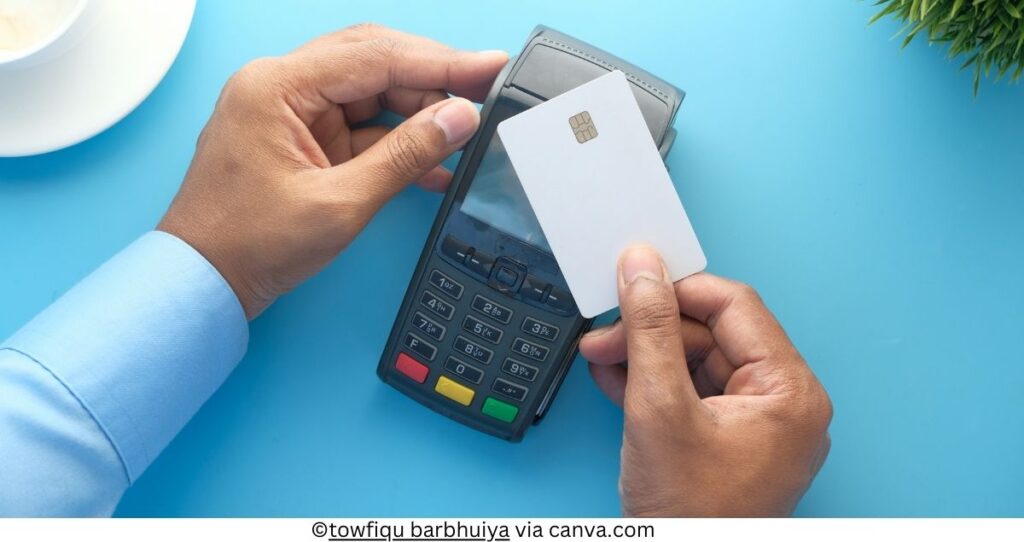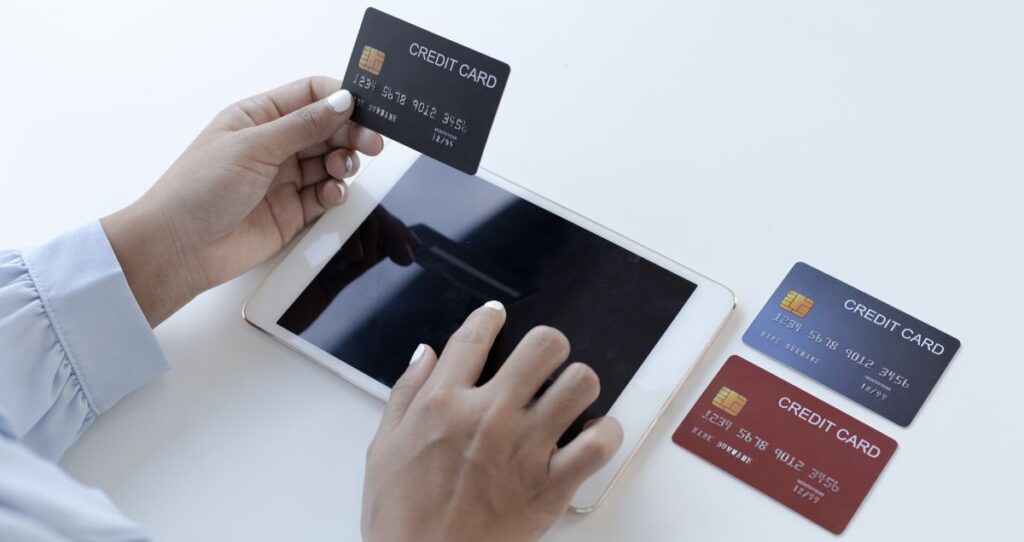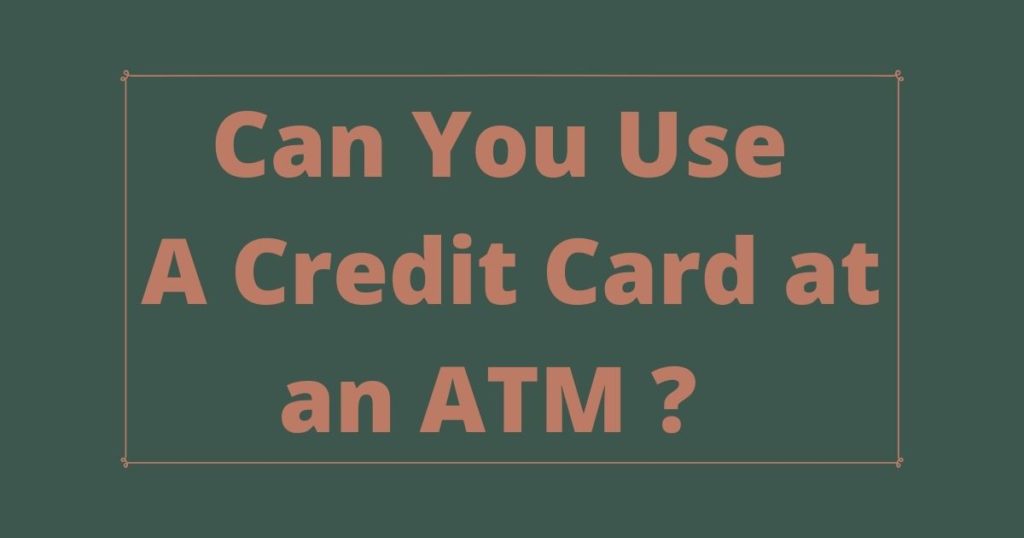Picking the right credit card can be a big challenge especially if you never had a credit account. Generally, the interest rate is the most important item to consider when selecting a credit card as it affects the amount you owe, especially when you carry a balance from month to month. Additionally, the credit card’s rewards program is another important factor to consider for maximizing your savings and credit card benefits. Furthermore, you should take into account the annual fees and additional charges when selecting a credit card.
Here is everything you need to consider when selecting a credit card.
Which item is important when selecting a credit card?
If you are ready to get your first credit card, here is a list of important items to consider to get the best credit card and maximize its benefits.
1. Interest rate
The interest rate is the cost of borrowing the principal. The higher the interest rate, the more money it costs you to take out loans. As a consumer, you must borrow money and get credit cards at the lowest interest rate you can qualify for.
The interest rate is also the most important item to consider when selecting a credit card as rates are among the highest in the lending industry and are compounded daily. Paying a higher interest rate on your credit card will make your credit card balance grow exponentially when you carry most of your balance from month to month.
Some credit cards offer low initial rates that increase after a certain period which you can take advantage of. For example, most credit cards come with a 0% APR during a promotional period which is bumped to a conventional APR after this period.
Another important item to consider when selecting a credit card is the APR. The APR represents the total annual cost of having a credit card and carrying a balance on the card. The higher the APR, the more expensive your credit card becomes. Always check for the annual percentage rate (APR) to understand the interest and fees you will be charged the card.
Read more: How does APR on credit cards work?
2. Fees and penalties
Besides the interest rate, credit cards also come with fees that make your credit card expensive especially when you carry a large balance. When I got my first credit card, I used to withdraw cash from my credit card. I get it. I was naive and did not understand the impact of cash advances on my credit card which led to paying too many cash advance fees and grew my debt daily. It took me a few years to pay off my credit card balances due to high fees and penalties.
Due to the high fees and penalties that come with some credit cards, credit card fees, and penalties are the second biggest items to consider when selecting a credit card.
Here is a list of common credit card fees and penalties to evaluate when selecting a credit card.
Annual fees
Some credit cards come with mandatory fees which are usually paid once a year. You can expect as low as $30 per year or as high as $500 or more. Typically, credit cards that come with an annual fee are those with a lot of card holder’s benefits such as above-average cash backs, miles, points, and fraud protection.
Late-payment fees
Another item to consider when choosing a credit card is the late payment fee. Most credit card issuers charge you a fee when you don’t pay at least the minimum payment by the due date. The fee is usually outlined in your credit card terms and usually ranges between $25 to $50.
Read more: How to remove late payments from your credit report
Balance-transfer fees
Another important item to consider when getting a new credit card is the balance transfer fee. In simple terms, the balance transfer is the process of transferring your credit card balance to another credit card usually one that has a lower interest rate or to consolidate your credit card debt.
Generally, the balance transfer fees range between 3% to 5% of the balance you transferred. Pick a credit card with lower balance transfer fees to avoid paying a lot of interest on your new credit card.
Foreign transaction fees
If you travel a lot or want to use your credit card in a foreign country, check your credit card’s foreign transaction fees before you sign up for the card. Most credit card issuers charge you a fee when you use your credit card in a foreign country.
Opt for a card with minimum fees and reasonable penalties to avoid excessive charges. Usually, credit card foreign transaction fees are about 3% to 5% of the purchase you made overseas. According to WalletHub, about 25% of all credit cards do not come with foreign transaction fees. To avoid paying too much fees in foreign transaction fees, pick a credit card with the lowest foreign transaction fees or use a credit card that does not have this fee.
Cash advance fees
A cash advance fee is one of the most important items to consider when selecting a credit card. Even if you are not planning to withdraw cash from your credit card, pick a card with a low cash advance fee.
A cash advance is when you withdraw cash from a credit card. You can do this at an ATM, inside your bank, or at a store cashier. While a cash advance is the fastest way to access needed cash, withdrawing money from your credit card comes with high fees and APR. The cash advance fee is usually 3% to 5% of the total balance you withdrew or a flat fee such as $10 whichever is larger.
For example, withdrawing $500 from your credit card will cost you $25 if your card comes with a 5% cash advance fee. Additionally, cash advance comes with its own APR which is not the same as your normal credit card APR. The cash advance APR also starts compounding daily after realizing the cash advance. Usually, the cash advance APR can range between 17.99% to 29.99%.
Read more: How to get cash advance from credit card?
Overspending fees
If you spend more than your credit limit, your card issuer might charge you an overdraft fee. The credit card overdraft fee is usually $25 although some card issuers can charge you higher or lower than $25. To get the most out of your credit card, apply for a card with no overdraft fee. Or at least get a credit card with a small overdraft penalty.
3. Rewards and incentives
Many credit card providers offer rewards programs including cash back, points, or travel miles. Rewards programs are some of the most important items to consider when choosing a credit card as they can save you money on daily purchases. An ideal credit card should have the highest reward program without paying an annual fee. Start by evaluating whether the rewards are useful for your spending habits and lifestyle. Then, pick a card that matches your financial habits.
Read more: Cash back vs. points and miles: Which one is best for you?
4. Grace period
The grace period is another important item to consider when selecting a credit card. The grace period is the time between your credit card billing cycle and your payment due date. This period usually ranges between 21 days to 25 days before the interest begins accruing on your balance. A longer grace period offers you more time to pay off your balance without incurring interest, making the card more cost-effective. To maximize your credit card benefits, choose a credit card with a higher grace period.
Many credit card issuers also give you 15 to 30 days before late payments are reported to credit reporting agencies. This buys you more time to bring your delinquent account current to avoid having a late payment on your credit report.
Read more: How to use a credit card grace period to your advantage
5. Credit limit
If you are getting a credit card with the intention of daily spending, a higher credit limit should be an important item you evaluate.
The credit limit is the maximum amount you can charge on your card. A good card will offer a limit that suits your spending habits and financial needs. Your credit limit is usually reflected by your current credit score, income, and debt-to-income(DTI) ratio.
You might also like:
- The best time to ask for a credit limit increase
- What is a good credit limit on a credit card?
- How do Credit Card issuers determine Your Credit card Limit?
6. Security and fraud protection
Having protection is an essential item to consider when getting a credit card. With access to the internet worldwide, it is easy to get scammed or hacked which can lead to identity theft and losing money. Even if you don’t want to have an identity protection plan, the option should be average in case you need it.
Check what measures the credit card company takes to protect your card information from theft or unauthorized use. Also, understand their procedures when reporting fraudulent activities. The more protection you get with your credit card, the better.
7. Customer service
While you might not need to call your credit card company daily, the credit card you apply for should come from a company with great customer service. If your card issuer has bad customer service, you might not get the support you need which might cost you dearly depending on the nature of your emergency.
For this reason, you should apply for a credit card from a company with excellent customer service, especially when reporting a dispute a charge, or a stolen card. Consider the card issuer’s response time, accessibility, and how they handle customer complaints.
What to avoid when choosing a credit card?
When choosing a credit card, avoid making a decision based on promotional offers or initial incentives. These offers soon expire, leaving you with high-interest rates or other undesirable terms.
Additionally, avoid choosing a card with annual fees, particularly if you do not intend to use the card frequently. Always beware of cards with high-interest rates to avoid expensive interest charges when you carry a balance from month to month.
Another item to consider when selecting a credit card is the terms of your credit card. Misunderstandings of your payment schedules, interest rates, and penalty fees can lead to costly mistakes. Furthermore, don’t choose a card that doesn’t align with your spending habits and financial goals. If you rarely travel, a card that offers travel rewards may not be the best option.
You might also like: 9 Things to Know Before Getting a Credit Card
What is the golden rule of credit cards?
The golden rule of credit cards is to always pay your balance in full each month. This habit helps to avoid unnecessary interest charges and maintain a good credit score. You should also use your credit card wisely to avoid accumulating too much credit card debt.
What’s the most difficult thing about using credit cards?
The most difficult aspect of using credit cards is often associated with the risk of overspending. Credit cards provide a sense of unlimited money, which may fuel impulsive purchases above your means. High interest rates can also exacerbate the financial burden if you don’t pay your balances in full each month. You should also consider credit card penalties and fees as they can lead to a cycle of debt that’s hard to pay off.
How many credit cards should you have?
The number of credit cards you should have depends on your financial habits and needs. Having multiple cards might be beneficial if you can manage your payments effectively. Ideally, you should have at least two credit cards from different networks (such as Visa, MasterCard, or Discover) to provide flexibility in case a retailer doesn’t accept one of them.
However, more than five cards can be difficult to manage, potentially leading to missed payments or high balances. So, a good range could be between two to four cards. A good number of credit cards allows you to maintain a good credit score, provide necessary coverage in emergencies, and prevent you from accumulating too much debt.
More credit card tips
Is it a good idea to withdraw money from a credit card?







